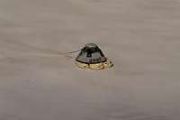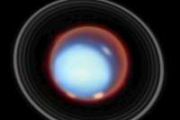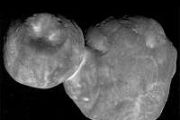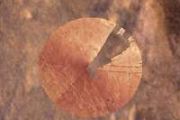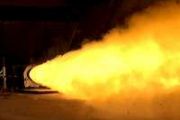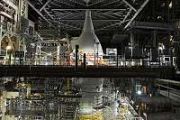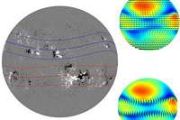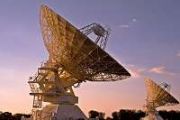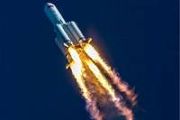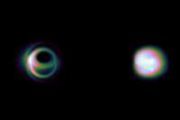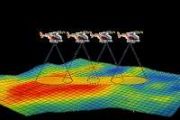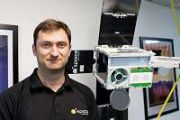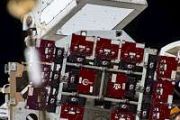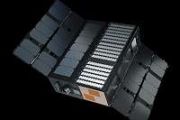
Copernical Team
ESA's sustainability ambition
 Video:
00:04:21
Video:
00:04:21
Space activities are unlike any others. They interact not just with Earth, but with three interconnected environments: Earth, Earth’s orbit, and the Moon and deep space. On Earth, we aim to reduce the space sector’s environmental impacts while maximising the societal and environmental benefits of our missions. In orbit, we manage space debris and collision risks to maintain safe and secure operations. For the Moon and deep space, we are laying the foundations to minimise the impact of our missions on and around other celestial bodies.
Guided by our core values, ESA is committed to making its activities
NASA hit by fuel leaks during a practice countdown of the moon rocket that will fly with astronauts
Verifying that you are not a bot
MDA Space and Hanwha target Korean K-LEO defense network
 MDA Space has signed a Memorandum of Understanding with Hanwha Systems to pursue collaboration on Korea's planned sovereign Low Earth Orbit K-LEO defense constellation, targeting enhanced military communications and data services for national security operations. The agreement sets a framework for the two companies to explore how MDA Space's AURORA software-defined digital satellite platform can
MDA Space has signed a Memorandum of Understanding with Hanwha Systems to pursue collaboration on Korea's planned sovereign Low Earth Orbit K-LEO defense constellation, targeting enhanced military communications and data services for national security operations. The agreement sets a framework for the two companies to explore how MDA Space's AURORA software-defined digital satellite platform can Airspan 5G platform selected for Space Compass high altitude maritime network
 Airspan Networks Holdings LLC has announced that it will deploy a 5G Air-to-Ground communications system for Space Compass's High-Altitude Platform Station, creating a new capability for maritime domain awareness from the stratosphere. The partnership will use high-altitude aircraft operating around 16 to 18 kilometers to extend secure broadband connectivity far beyond the reach of conventional
Airspan Networks Holdings LLC has announced that it will deploy a 5G Air-to-Ground communications system for Space Compass's High-Altitude Platform Station, creating a new capability for maritime domain awareness from the stratosphere. The partnership will use high-altitude aircraft operating around 16 to 18 kilometers to extend secure broadband connectivity far beyond the reach of conventional Gravitational wave triad puts relativity under intense scrutiny
 An international team working within the LIGO Virgo KAGRA collaboration has used the exceptionally clear gravitational wave signal GW250114 to carry out some of the most precise tests yet of Einstein general theory of relativity. The work, which appears in Physical Review Letters, relies heavily on contributions from researchers at the Max Planck Institute for Gravitational Physics (Albert Einst
An international team working within the LIGO Virgo KAGRA collaboration has used the exceptionally clear gravitational wave signal GW250114 to carry out some of the most precise tests yet of Einstein general theory of relativity. The work, which appears in Physical Review Letters, relies heavily on contributions from researchers at the Max Planck Institute for Gravitational Physics (Albert Einst AI framework links gravitational waves and radio afterglows
 When two neutron stars collide, they generate gravitational waves and light across the electromagnetic spectrum, from intense gamma ray flashes to faint radio signals that can persist for years. These multi-messenger events contain rich information about the physics of compact objects, their environments and the formation of heavy elements, but extracting that information efficiently has proved
When two neutron stars collide, they generate gravitational waves and light across the electromagnetic spectrum, from intense gamma ray flashes to faint radio signals that can persist for years. These multi-messenger events contain rich information about the physics of compact objects, their environments and the formation of heavy elements, but extracting that information efficiently has proved Smartphone kit offers low cost on site radiation dose checks
 Prompt, individual dose assessment is a critical part of protecting people after large scale nuclear or radiological incidents, but traditional dosimetry relies on expensive instruments or laboratory processing that can delay decisions on medical care. Researchers at Hiroshima University have now demonstrated a portable, low cost system that pairs a small piece of radiochromic film with a foldab
Prompt, individual dose assessment is a critical part of protecting people after large scale nuclear or radiological incidents, but traditional dosimetry relies on expensive instruments or laboratory processing that can delay decisions on medical care. Researchers at Hiroshima University have now demonstrated a portable, low cost system that pairs a small piece of radiochromic film with a foldab Laser method proposed to extend muon lifetime for science applications
 Unless they work in particle physics or a related discipline, most people are unlikely to have encountered muons, elementary particles that resemble electrons but are around 200 times heavier and interact only weakly with matter. This combination of properties enables muons to penetrate dense materials and be used in imaging techniques similar to X rays, but on the scale of large and heavy struc
Unless they work in particle physics or a related discipline, most people are unlikely to have encountered muons, elementary particles that resemble electrons but are around 200 times heavier and interact only weakly with matter. This combination of properties enables muons to penetrate dense materials and be used in imaging techniques similar to X rays, but on the scale of large and heavy struc Engineered microbes use light to build new molecules
 Researchers are developing new ways to reprogram the cellular machinery of microbes such as yeast and bacteria so they can manufacture useful products for medicine and industry. A team at the Carl R. Woese Institute for Genomic Biology has now shown that they can extend the biosynthetic capabilities of microbes by harnessing light to drive new types of chemical reactions inside cells.
In w
Researchers are developing new ways to reprogram the cellular machinery of microbes such as yeast and bacteria so they can manufacture useful products for medicine and industry. A team at the Carl R. Woese Institute for Genomic Biology has now shown that they can extend the biosynthetic capabilities of microbes by harnessing light to drive new types of chemical reactions inside cells.
In w Martian toxin found to toughen microbe built bricks
 Bacteria that thrive on Earth may not survive easily on Mars, where the soil contains toxic perchlorate salts at levels that can reach about 1 percent by weight. Researchers at the Indian Institute of Science have now shown how a brick building soil bacterium responds to this chemical and discovered that although the toxin slows growth and stresses the cells, it can also yield stronger biocement
Bacteria that thrive on Earth may not survive easily on Mars, where the soil contains toxic perchlorate salts at levels that can reach about 1 percent by weight. Researchers at the Indian Institute of Science have now shown how a brick building soil bacterium responds to this chemical and discovered that although the toxin slows growth and stresses the cells, it can also yield stronger biocement 
